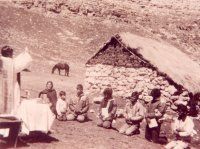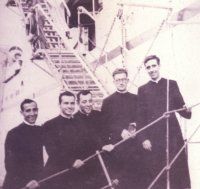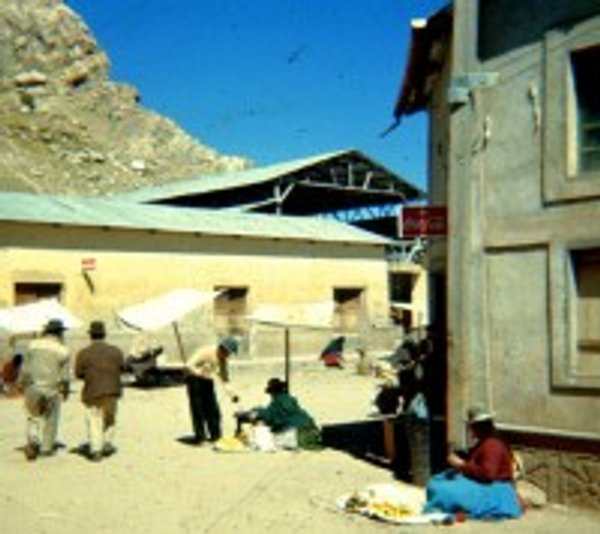Father Pelach landed in the Peruvian port of Callao in 1957. He was one of five diocesan priests who went to take care of the new Prelature of Yauyos, recently created and entrusted to Opus Dei by Pope Pius XII. From then until his death on July 19, 2007, Father Pelach remained in Peru.
As a young priest, when finishing his studies in Rome, he met and became a friend of St. Josemaría Escrivá. Shortly thereafter he was the first priest to ask for admission to the Priestly Society of the Holy Cross, which St. Josemaría had founded as an association of the clergy intrinsically united to Opus Dei.
Father Pelach was appointed Bishop of Abancay by Pope Paul VI and took possession of the diocesan Cathedral on July 21, 1968. It was in that same Cathedral that his funeral took place on July 21, 2007. In his homily, the current Bishop Isidro Sala said that the heart of Bishop Pelach "has ceased to beat on earth, but it has not ceased to love, because Love with a capital letter—that love with which he loved God and humanity—will never end."

The current bishop of Abancay recalled "the many hours that Bishop Pelach had ridden on horseback through the mountains of Yauyos and Huarochiri. These were apostolic and missionary travels: giving catechism classes, hearing confessions, celebrating Holy Mass, visiting the sick and the poor."
Bishop Sala said that "as the first priest of the Priestly Society of the Holy Cross, he also helped the Work grow and opened up a pathway with his fidelity. He sought sanctity with determination in his ministry as a priest and as a bishop. In Opus Dei, as he himself said, one finds the best place both to live and to die."
He added that, "in a difficult moment," he had received from St. Josemaría "the advice and encouragement to create the diocesan seminary for the formation of priests in this land, which has borne such great fruit."

Bishop Sala said that his predecessor had "great compassion for the multitude," which led him "to found many social works such as the Home for the Aged, helped by Mother Celina, a discalced Carmelite. He gathered up in his own car the beggars sleeping in the street. For the care of lepers and the poorest of the sick he created the Santa Teresa Medical Center. He founded residences for students and medical clinics." And he did all this, the Bishop of Abancay added, following St. Josemaría’s motto: "to hide and disappear, so that only Jesus shines forth."
"His love for the poor was of a great evangelical depth: one has to visit Abancay to know the greatness of Enrique’s soul," wrote Cardinal Juan Luis Cipriani, Primate of Peru, in an article published in the newspaper El Comercio on August 2, 2007.

Cardinal Cipriani in that article also highlighted his "enterprising talent and his simplicity, which could move mountains." "He brought thousands of men and women of all ages and social conditions to God. He was the same when on a horse or mule in the Andes on a mission at more than 12,000 feet as when smiling at a child, or taking care of someone who was dying, or singing in a low voice of the beauty of the mountains where he was riding. He had a clean soul, transparent and noble, ablaze with love for God and all mankind."
According to the Cardinal, "he saw the teaching of the faith as a very urgent task, reflected in the monumental work of the Pelach-Kunher Catechism, of which more than 100,000 copies have been sold. Another instrument he provided was the Devocionario Rezar y Cantar [Prayer and Song Book], which thousands of our ‘campesino’ brothers and sisters in the Andean mountains have found useful."
(from Romana 46 )
